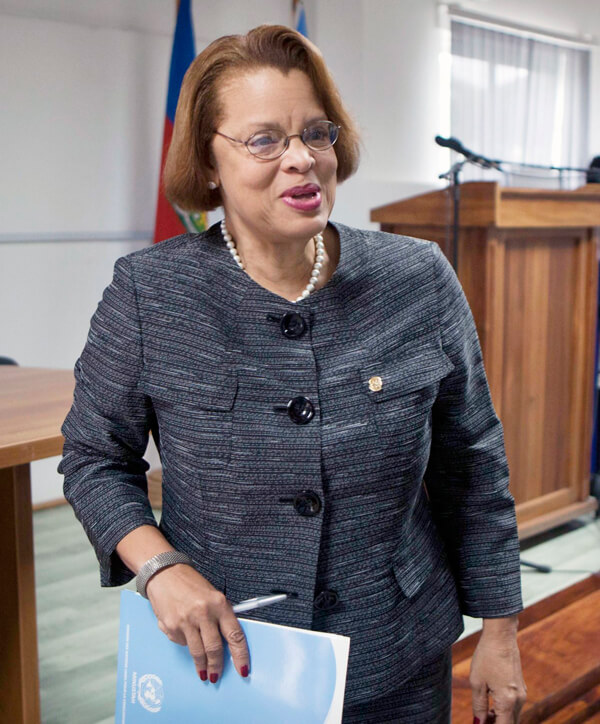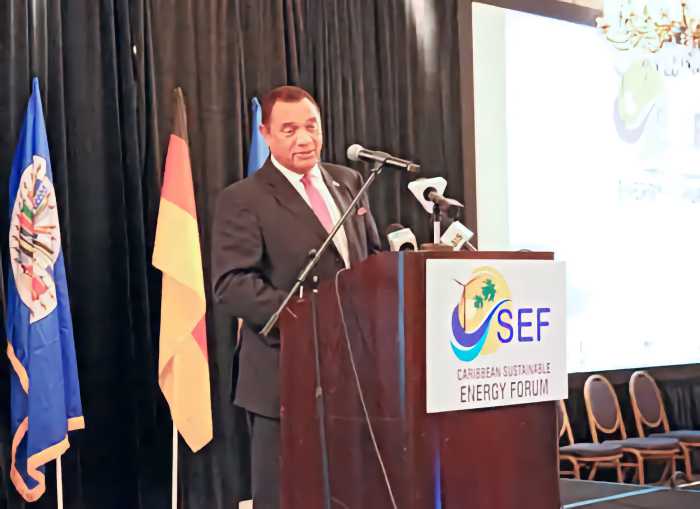A senior United Nations official and the UN Security Council have joined the international community in congratulating the next president of Haiti, Jovenel Moïse, whose election, the UN said, “completes a repeatedly delayed process that took over a year.”
Sandra Honoré, the special representative of the secretary-general in Haiti, and the other members of the so-called “Core Group” on Wednesday welcomed the announcement by Haiti’s Provisional Electoral Council (CEP) that Moïse won the Nov. 20, 2016 election.
The Core Group “encourages all actors to respect the final results and to work constructively toward the peaceful completion of the electoral cycle,” according to a statement, which also stressed the importance of keeping with the provisions of the Electoral Decree and an established calendar.
Besides the United Nations, the Core Group comprises the ambassadors of Brazil, Canada, France, Spain, the United States, the European Union and the Organization of American States (OAS).
The UN Security Council commended the Haitian Provisional Electoral Council and the Haitian National Police, as well as the people of Haiti on a “positive step” for the full restoration of the French-speaking Caribbean country’s democratic institutions.
The 15-member Council urged all political actors to accept the final electoral results, refrain from violence and work together.
Haiti has been led by an interim president since last February, when the Haitian National Assembly elected Jocelerme Privert one week after former President Michel Martelly departed without a successor, the UN said.
It said the election was originally scheduled for April 24.
In welcoming the final results of Haiti’s Presidential Election, the Electoral Observation Mission (EOM) of the Organization of American States (OAS) commended “the conclusion of an electoral process that, despite having been long and complex, has allowed the country to continue down the path of democratic strengthening.”
“The verification process of 12 percent of the returns, ordered by the Electoral Disputes Tribunal, at the request of different political actors, concluded that the returns analyzed did not show irregularities that could have affected the electoral process,” the EOM said.
The OAS said the use of “established legal processes to clarify questions about the results allowed” the CEP to announce the results.
According to the CEP, Moise, from P.H.T.K., garnered 55.60 percent of the; Jude Celestin, from LAPEH, 19.57 percent; Jean-Charles Moise, from Pitit Dessalines, 11.04 percent; and Maryse Narcisse, from Fanmi Lavalas, 9.01 percent.
The OAS’ EOM reiterated its call to respect the results published by the CEP and urged “all political actors to look ahead and work together in order to address the major challenges Haiti faces as a nation.”
The OAS said its EOM has been present in Haiti since June 2015.
During this period, more than 400 people were deployed, and the mission was able to observe all stages of the electoral process, the OAS said.
“The mission will continue to support Haitian democracy; and, as such, will deploy a group of experts and observers for the upcoming elections on Jan. 29, when Haitians will elect senators and local authorities,” the statement said.
The United States also said that Tuesday’s publication in Haiti of the final presidential results “represents a positive step for the full restoration of that nation’s democratic institutions.”
“We congratulate President-elect Jovenel Moïse on his first-round victory and look forward to working closely with him as we strengthen our longstanding partnership with Haiti,” said US State Department spokesman John Kirby.
“We urge all actors to accept the final results, refrain from violence, and work together to build a stable and prosperous Haiti,” he added. “The United States reiterates its support for timely completion of the remaining elections in Haiti in a fair, transparent, and peaceful manner.”



























